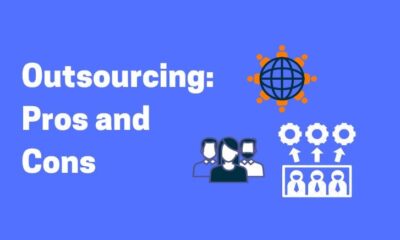BUSINESS
Little League, Big League – 8 Things to Consider with dealing with a client.
Published
8 years agoon

Many young entrepreneurs want to work with big companies, without understanding what it truly requires to successfully execute projects with big brands. In my entrepreneurial journey, I have found that individuals, and SME’s are much more forgiving than the big companies, and it’s a completely different ball game when you step into their court. You can’t step into the a Big League game, and play like a little league player – you will get crushed in moments. On this note, I have put together a few things to keep in mind when you decide you play in the Big league – Actually, all of these apply to all client work (Small, or Big), because in the end we all want to be known for our professionalism, and quality delivery.

Document EVERYTHING:
If it’s not in writing, then it never happened. When you work with companies, you’re dealing with multiple people at the same time, and it’s very important to communicate primarily in writing – via email. It’s easy for information to get lost in transition, especially when you have responsibilities changing hands, and clients that are working on multiple projects at the same time. Keeping everything documented will not only help your clients keep track of your needs, but will also protect you in instances of ‘he said’, ‘she said’, ‘they said’. Many clients have selective amnesia – especially when they are responsible for whatever issue is at hand. You’ll breathe a heavy sigh of relief when you can RE-FORWARD an email that was received and acknowledged (oh yes, always ensure that the recipient acknowledges receipt). Even if you’re friends with your client, it’s important that you draw the line between personal and business – do not manage your entire business relationship via phone conversations and physical meetings. There will be clients who say that they don’t care how the work gets done as long it’s done. Thank them for that, but still ensure that you send across a detailed plan of what is being done, and ensure that they sign off on the plan.

Make sure your company paperwork is up to date:
Working with a big company means filling out pages of long, unexciting, detailed paperwork. It also means that you will need to provide registration documents, updated tax documents, Shareholder identification, insurance papers, corporate trainings, corporate citizenship, bank references, supplier standards, and more. The task of sorting these documents out can be quite daunting, and so frustrating that it leaves you wanting to just give up on working with the big guys. But if your business is going to grow, you need to take your company paperwork seriously. If you cannot do it yourself, hire someone to do it for you. Either way, it must be done. Get those tax documents done, and stop postponing sorting out your insurance papers.

Set Realistic timelines:
This is one rule of business, whether you’re working with a big brand or an individual, you should always give realistic timelines. When you agree to deadlines that you cannot meet, you’re risking your reputation. Sometimes, clients will give unrealistic timelines, and they will take no prisoners when it comes to delivery. You must be able to speak up about your concerns, and negotiate a timeline that works for you. Don’t bite off more than you can chew. If the timeline provided by the client, means that you will need to deliver poor quality, then you’re better off turning down the job. Remember it’s your reputation at stake here, not theirs.

Don’t over-promise, Over Deliver Instead
Overpromising is part of our culture. Fact. I’ve hardly met a tailor that wasn’t 100% sure that they understood my design, until the finished product is presented and I shake my head. I also haven’t met a carpenter that isn’t 100% sure that he will produce the IKEA furniture photos that I showed him, until of course one of the drawers is missing, and he says “Madam, you don’t need the extra drawer”. Of course I don’t expect you not to convince your client of your 100% quality delivery. However, understand that you may not always fulfill your client’s full expectations. Keeping this in mind, it’s important to know when to say NO, rather than say “Yes” to everything. Your ability to say No to something you cannot do will save you the client account, your business reputation, and your client’s respect. Make sure you ask questions to understand the brief properly – clarity will help understand expectations. If there’s an aspect of a project is beyond the skill set of your team, you can ask your client if they would like to be referred to a 3rd party to handle that aspect of the work. Let them make the decision by themselves, and work with the vendor directly so that you’re not held accountable for that aspect of the work.

Admit when you make a mistake, and try to fix it.
If the work you produce doesn’t meet your clients expectations, you’ll need to regroup with your team and request for detailed feedback from the client (preferably in person). Ask as many questions to get clarity on what worked and didn’t work, offer an apology – you can also offer a discount to appease your client. Clients appreciate honesty, accountability, and empathy.

Build in a Contingency Budget
There’s nothing clients dislike more than finding out that you require more funds to complete a project after their budget has been signed off. Understand that no matter how much you plan, something will come up that is either out of the initial scope, or an item that you may have left out of your budget. Build in a contingency plan that accommodates small changes. If the client takes the project completely out of the agreed scope, then by all means request for additional budget to complete the project. Your contingency budget is for your personal errors, and any minor changes that you’re happy to provide you your client.

Include Taxes in your billing.
Ensure that you invoices are accurate, and include applicable taxes. If you don’t tax properly, you will have to eventually pay the tax from your pocket. There are state and federal taxes that apply to businesses, and even freelancers, and it’s important that you understand these taxes, and include this in any negotiations with your client. Understand that you cannot go back to the client to complain, if you forget to include taxes in your bills – this is your responsibility, not theirs!

Don’t look forward to the End of a Project, Look forward to the beginning of a new project.
Many people tend to focus on “wrapping up” projects, so that they can get paid and move on to the next pitch or client chase. Personally, I have imbibed a mindset of focusing on ensuring that the end of a client’s project, is the beginning of a new project with them. This means ensuring that you produce quality, and following up with them to receive feedback. Feedback is super important in business today. If your client has had a poor experience with you, it’s wise to work toward fixing it. It’s easy to think that they don’t matter, and you’ll never work with them again – this is possible. However, remember the power of influence – what they say to others. You might not work with them ever again, but you will attempt to work with people that they know, and risk the possibility that they have shared their poor experience with other companies.
You may like
-


How To Create A Winning Marketing Strategy For A Small Business In Nigeria
-


Top 6 Pros And Cons Of Outsourcing For Small Businesses
-


Will Mbappe Renew his Contract or Leave PSG?
-


5 Tips For Living Your Best Life For Less
-


This Is How You Can Spend Valentine’s Day On A Budget
-


Barcelona sues Neymar for £8m over alleged breach of contract
BUSINESS
Samsung Galaxy S25 Series Sets The Standard Of AI Phones As A True AI Companion
Published
2 months agoon
January 31, 2025
Samsung Galaxy S25 series sets the standard of AI phones as a true AI companion
…Pioneering the multimodal era with the most context-aware and personalized mobile experience
Lagos, Nigeria – January 23, 2025 – Samsung Electronics Co., Ltd. has announced the Samsung Galaxy S25 series: Galaxy S25 Ultra, Galaxy S25+ and Galaxy S25, setting a new standard as a true AI companion with the most natural and context-aware mobile experiences ever created. Introducing multimodal AI agents, the Galaxy S25 series is the first step in Samsung’s vision to change the way users interact with their phone – and with their world.
A first-of-its-kind customized Snapdragon® 8 Elite Mobile Platform for Galaxy chipset delivers greater on-device processing power for Galaxy AI and superior camera range and control with Galaxy’s next-gen ProVisual Engine.

Galaxy S25 Ultra
With One UI 7, the Galaxy S25 series is a true AI companion that understands the context of your needs and preferences and provides personalized AI experiences with privacy assured at every turn.
It’s the starting point of a shared vision with Google to imagine Android with AI at the core, bringing together developers and partners from around the world.
AI agents with multimodal capabilities enable Galaxy S25 to interpret text, speech, images and videos for interactions that feel natural. Upgrades to Google’s Circle to Search make searching your phone screen more helpful, fast and contextual. Circle to Search now quickly recognizes phone numbers, email and URLs on your screen, letting you call, email or visit a website with a single tap.
With Galaxy S25 series, you can also perform actionable searches with context-aware suggestions for next steps. Plus, Galaxy S25 makes it frictionless to switch between apps for quick follow-up actions, like sharing a GIF or saving event details.
Galaxy S25 represents a breakthrough in natural language understanding, making everyday interactions easier. Simply ask and intuitively find a specific photo in Samsung Gallery or adjust the size of display fonts in Settings.
In the era of AI, personalization goes hand in hand with privacy. On the Galaxy S25, the Personal Data Engine powers personalized AI features by safely analyzing your data on-device to deliver highly tailored experiences that reflect your preferences and usage patterns.
These insights enable tailored experiences, such as using natural language to search for an old photo in the Gallery or being guided through the day with Now Brief, which proactively offers suggestions accessible via Now Bar on the lock screen. Knox Vault keeps all personalized data private and secure.
Combined with enhanced on-device processing capabilities, this creates a powerful, protected AI experience that is unique to Galaxy.

Galaxy S25+
Galaxy’s Most Powerful Performance Ever
The Galaxy S25 series is powered by the Snapdragon® 8 Elite for Galaxy. With unique customizations by Galaxy, this is the most powerful processor ever on the Galaxy S series. Further delivering a performance boost of 40% in NPU, 37% in CPU and 30% in GPU. This is compared to the previous generation.
This power fuels the Galaxy S25 series’ ability to process more AI experiences on-device without compromise, including previously cloud-based AI tasks such as Generative Edit.
10-bit HDR recording is now applied by default, offering four times richer color expression compared to 8-bit. Galaxy S25 can thus capture details in any lighting conditions. Plus, low-light videos have never been clearer than with Galaxy S25.
Based on powerful processor, Galaxy S25 analyzes movement and time to reduce noise more effectively. This integration allows detecting both moving and static objects with greater precision, ensuring sharper, cleaner footage in any scenario.
Galaxy S25 also introduces a range of tools once limited to specialized software, making advanced editing accessible for all. Now anyone can be a pro at editing photos and videos. Audio Eraser simplifies the removal of unwanted noise in videos. By isolating categories of sounds – including voices, music, wind, nature, crowd and noise – you can control what to tone down or eliminate entirely.

Galaxy S25 Series
Durable Design Embracing a More Circular Approach
The Galaxy S25 series builds upon Galaxy’s ‘Essential Design’ grounded in ‘Simple, Impactful and Emotive’ elements.
Galaxy S25 Ultra refines this essence into the slimmest, lightest and most durable Galaxy S series yet. This is with a rounded edge for a comfortable grip that complements the series’ aesthetic identity.
Galaxy S25 Ultra features durable titanium and the new Corning® Gorilla® Armor 2, a first-of-its-kind material that is more durable than glass. It combines Corning’s glass-ceramic with a proprietary anti-reflective surface treatment. This helps to ensure advanced drop protection alongside anti-reflection surface treatment and scratch resistance.
Combined with seven generations of OS upgrades and seven years of security updates, the Galaxy S25 series ensures a reliable and optimized performance over a longer lifespan.
For greater peace of mind, Samsung Care+ offers comprehensive coverage for accidental damage, repairs, and replacements, ensuring peace of mind for Galaxy users.
The Galaxy S25 series is available to order. Galaxy S25 Ultra will be available in Titanium Silverblue, Titanium Black, Titanium Whitesilver and Titanium Gray. Galaxy S25 and Galaxy S25+ will be available in Navy, Silver Shadow, Icyblue and Mint.
For more information about the Galaxy S25 series, please visit: Samsung Newsroom, SamsungMobilePress.com or Samsung.com.
BUSINESS
5 Success Tips For Start-Up Businesses In Nigeria
Published
3 months agoon
December 23, 2024By
wpadminee
Nigeria’s entrepreneurial landscape is vibrant yet demanding, and success tips for start-up businesses in Nigeria are essential for navigating its challenges.
Achieving business success requires a combination of strategic planning, resilience, and a clear understanding of the market.
For start-ups, mastering these success tips for start-up businesses in Nigeria can help transform obstacles into opportunities and turn ideas into thriving ventures.
By adopting the right strategies, entrepreneurs can effectively launch and scale their businesses in Nigeria’s competitive environment.
These success tips for start-up businesses in Nigeria offer crucial insights into overcoming challenges, seizing opportunities, and building sustainable growth.
1. Develop a Robust Business Plan
Crafting a comprehensive business plan is fundamental for start-ups in Nigeria. Successful entrepreneurs recognise that a well-structured plan serves as a roadmap for growth. Your business strategy should include:
- Detailed market research
- Clear financial projections
- Competitive analysis
- Realistic operational strategies
Success tips for business always emphasise the importance of thorough planning. Nigerian start-ups must create flexible plans that can adapt to the dynamic economic environment.
2. Leverage Technology and Digital Platforms
Digital transformation is crucial for modern start-ups in Nigeria. Embracing technological solutions can significantly enhance business efficiency and market reach. Success tips for business in the digital age include:
- Utilising cloud computing
- Implementing robust cybersecurity measures
- Exploring e-commerce platforms
- Developing mobile-friendly interfaces
Start-ups in Nigeria must invest in technological infrastructure to remain competitive and innovative.
3. Build a Strong Network and Partnerships
Networking is a critical success tip for business growth in Nigeria. Building strategic relationships can open doors to opportunities, funding, and mentorship. Entrepreneurs should:
- Attend industry conferences
- Join professional associations
- Engage with local and international business communities
- Seek mentorship from experienced entrepreneurs
Successful start-ups in Nigeria understand that connections are as valuable as capital.
4. Secure Adequate Funding and Financial Management
Financial stability is paramount for start-ups in Nigeria. Success tips for business include:
- Exploring multiple funding sources
- Maintaining transparent financial records
- Understanding government grants and initiatives
- Developing sound financial management strategies
Nigerian entrepreneurs must be creative in securing and managing their financial resources.
5. Prioritise Customer Experience and Market Adaptation
Customer-centric approaches distinguish successful start-ups in Nigeria. Entrepreneurs should:
- Conduct regular market research
- Gather and implement customer feedback
- Stay agile and responsive to market changes
- Develop unique value propositions
Success tips for business always highlight the importance of understanding and serving customer needs effectively.
Additional Considerations for Nigerian Start-ups
Beyond these core strategies, start-ups in Nigeria must also:
- Navigate regulatory environments
- Understand local business cultures
- Develop resilience against economic fluctuations
- Continuously learn and upgrade skills
Conclusion
Success tips for business are not one-size-fits-all solutions. Start-ups in Nigeria must combine strategic planning, technological innovation, strong networks, financial acumen, and customer focus to thrive.
By implementing these strategies, Nigerian entrepreneurs can transform challenges into opportunities and build sustainable, successful businesses in an increasingly competitive global marketplace.
If you found this article helpful, continue reading here.
BUSINESS
5 Myths About The Job Market And Their Solutions
Published
4 months agoon
December 8, 2024By
wpadminee
Myths about the job market can mislead job seekers and professionals navigating career transitions. Many individuals fall prey to outdated beliefs that no longer reflect the dynamic employment landscape.
Myths about the job market often include misconceptions about required qualifications, salary expectations, and career progression.
One prevalent myth suggests that a traditional four-year degree guarantees immediate employment when in reality, skills, adaptability, and networking play crucial roles.
Another widespread misconception is that changing careers is impossible after a certain age, which undermines the potential of experienced professionals seeking transformation.
Myths about the job market also perpetuate the idea that stability means staying in one role for decades. Modern career paths are increasingly non-linear, with professionals expecting to change jobs multiple times.
The solution lies in continuous learning, developing transferable skills, embracing technological advancements, and maintaining a flexible, growth-orientated mindset.
Myths about the job market can be debunked through proactive research, upskilling, and understanding emerging industry trends.
Let’s take a quick look at these myths and how to solve them below.
Myth 1: You Need a Four-Year Degree to Succeed
While a college degree can open doors, it’s not the only path to a fulfilling career. Many successful professionals have built thriving careers without a traditional degree.
Solution:
- Skill-Based Learning: Focus on developing in-demand skills through online courses, boot camps, or certifications.
- Networking: Build relationships with professionals in your desired field, regardless of their educational background.
- Freelancing and Gig Work: Gain experience and build a portfolio through freelance projects.
Myth 2: The Job Market is Saturated
It’s true that competition can be fierce, but there are still plenty of opportunities for skilled individuals. The key is to identify niche markets and unique value propositions.
Solution:
- Niche Down: Specialise in a specific area within your industry to stand out from the crowd.
- Continuous Learning: Stay updated on industry trends and emerging technologies to remain competitive.
- Personal Branding: Build a strong personal brand to attract potential employers and clients.
Myth 3: You Should Only Apply to Job Postings
While applying to job postings is a traditional approach, it’s not the only way to land a job. Proactive job hunting can yield better results.
Solution:
- Networking: Connect with people in your industry and let them know you’re looking for opportunities.
- Informational Interviews: Schedule informational interviews to learn about potential job openings and company culture.
- Cold Emailing: Reach out to hiring managers directly to express your interest in a position.
Myth 4: You Should Stay in a Job You Hate
Staying in a job you despise can negatively impact your mental health and career progression. It’s essential to prioritise your well-being and seek new opportunities.
Solution:
- Set Career Goals: Define your long-term career aspirations and create a plan to achieve them.
- Upskill and Reskill: Invest in your professional development to enhance your job prospects.
- Network Strategically: Build relationships with people who can help you find new opportunities.
Myth 5: The Job Market is Only for Young People
Age discrimination is a real issue, but it doesn’t mean older workers can’t find fulfilling careers. Experience and wisdom are valuable assets in the job market.
Solution:
- Highlight Your Experience: Emphasise your skills and accomplishments, focusing on how they can benefit your potential employer.
- Adapt to Change: Stay updated on technological advancements and industry trends.
- Mentor Younger Professionals: Sharing your knowledge and experience can boost your credibility and open doors to new opportunities.
Remember, the job market is constantly evolving. By debunking these myths and taking proactive steps, you can increase your chances of finding a fulfilling career.
So, don’t let these misconceptions hold you back. Keep learning, keep networking, and keep believing in yourself.
Key takeaways:
- Myths about the job market can hinder your job search.
- A four-year degree is not always necessary to succeed.
- Skill-based learning and networking can help you land a job.
- The job market is not saturated, but you need to niche down and continuously learn.
- Applying to job postings is not the only way to find a job.
- You should not stay in a job you hate.
- The job market is not only for young people.
- Older workers can still find fulfilling careers by highlighting their experience and adapting to change.
By understanding these myths and implementing the suggested solutions, you can empower yourself to navigate the job market with confidence and achieve your career goals.
Check out more updates here.
Latest


Samsung Galaxy S25 Series Sets The Standard Of AI Phones As A True AI Companion
Samsung Galaxy S25 series sets the standard of AI phones as a true AI companion …Pioneering the multimodal era with...


5 Things To Expect In Afrobeats In 2025
Afrobeats is poised to reach unprecedented heights in 2025 as Nigerian music continues its remarkable global ascent. The genre’s explosive...


Here Are The 7 Most Ancient Countries On Earth
The oldest countries in the world stand as remarkable testaments to human civilisation, each containing landscapes and monuments that narrate...


Why Self-Reflection Is More Important Than Resolutions
Millions of people embark on a yearly ritual: they sit down with a notebook and pen, eager to craft a...


Nollywood Director, Kemi Adetiba Teases King Of Boys 3
Nollywood director Kemi Adetiba has revealed that another instalment of King of Boys will be released on December 25, 2025....


John McEnroe Says He Can Be The Commissioner Tennis Needs Amid Doping Crisis
Recent doping controversies involving top players have not damaged tennis’s reputation, but John McEnroe believes that appointing a single commissioner...


“Everybody Loves Jenifa” Becomes Nollywood’s Highest-Grossing Film Of All Time
Nollywood filmmaker Funke Akindele has achieved a historic milestone with her latest film, “Everybody Loves Jenifa.” The film has officially...


FG To Premiere TV Series, “Hidden Riches” On Mining Sector On January 25
Nigeria’s Federal Government will launch an ambitious television drama series focused on the nation’s mining sector, premiering “Hidden Riches” on...


Qing Madi Delivers A Soulful Performance Of “Favourite Pyscho”
Rising Afro-RnB sensation Qing Madi launches into 2025 with a mesmerising performance on the prestigious COLOURS platform, showcasing her latest...


Taiwo Awoniyi’s First Goal Of The Season Seals Nottingham Forest’s Win Over Wolves
Taiwo Awoniyi made a triumphant return to Premier League action. He scored in stoppage time to help Nottingham Forest crush...
-Ad-




